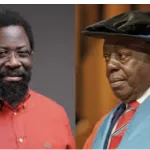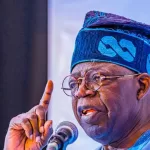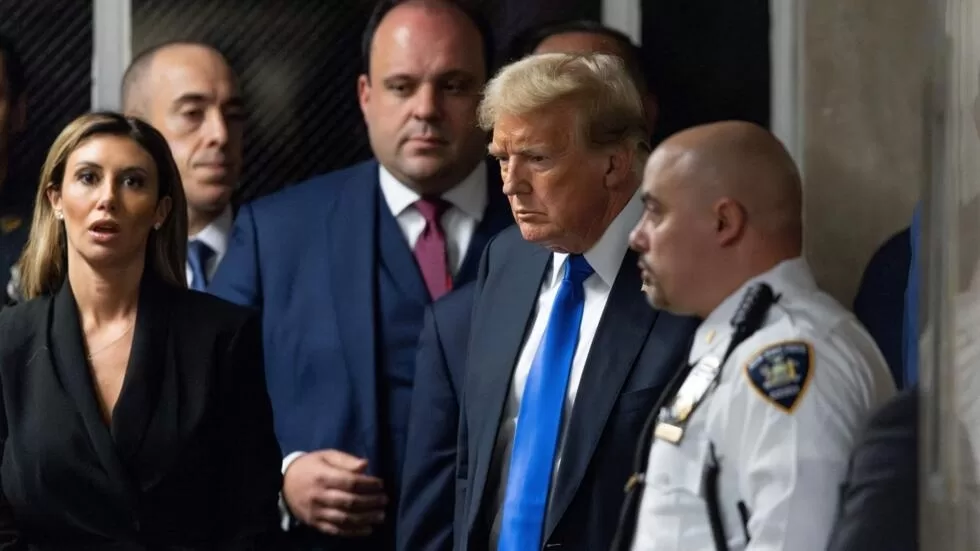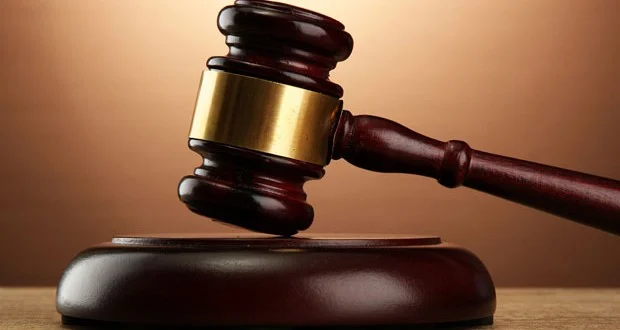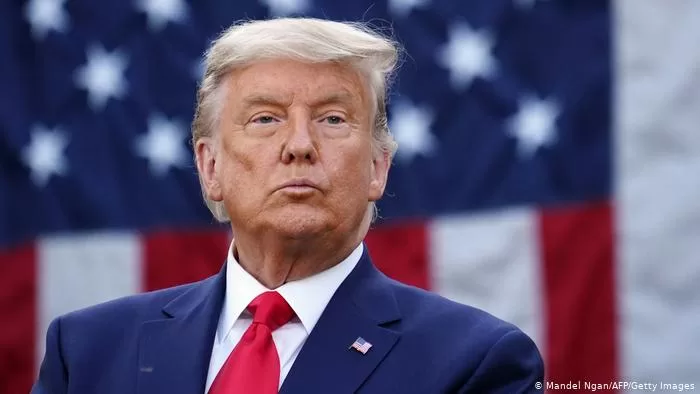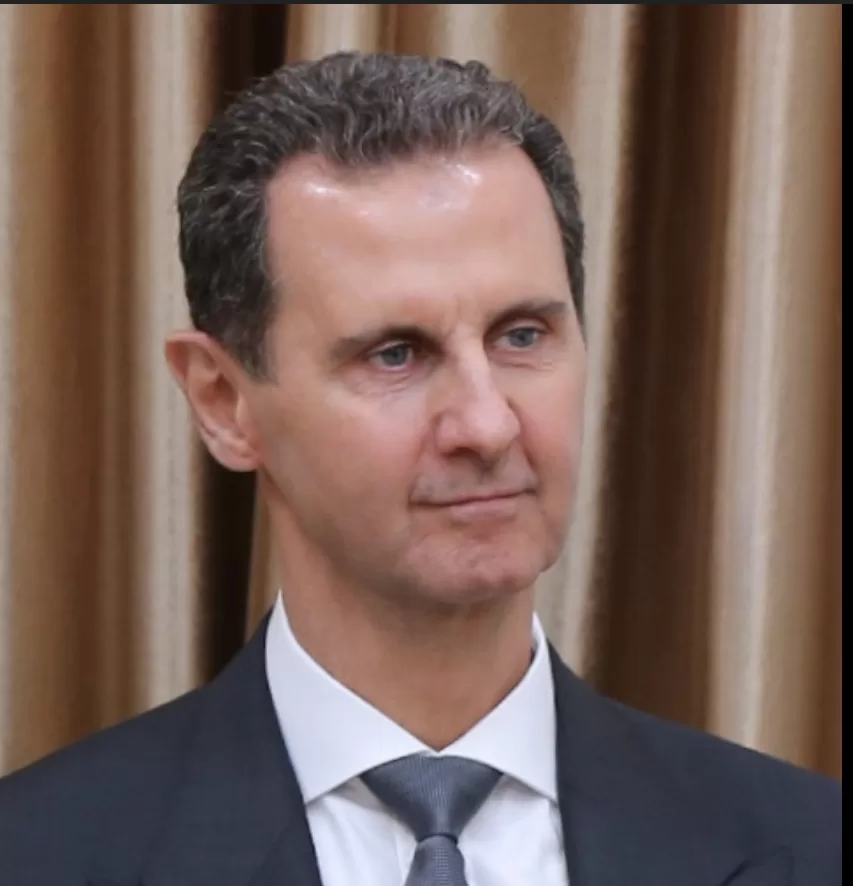Donald Trump has been found guilty of falsifying business records, a felony that could result in prison time.
He will be sentenced on July 11. The charges carry a maximum prison sentence of four years, but legal experts consider prison unlikely given Trump’s lack of a criminal record.
The former US president had pleaded not guilty to 34 felony counts of falsifying business records in the first degree, to conceal a payment made to porn star Stormy Daniels during the 2016 election campaign.
The jury in the New York criminal trial returned its verdict after less than two days of deliberations. It found him guilty on all 34 counts.
Trump is likely to appeal.
The verdict does not legally affect his presidential campaign. Under US law, convicted felons cannot vote in most states, but can be elected president.
Speaking at the courthouse after the verdict was handed down, Trump railed against the “rigged, disgraceful trial”.
“I’m a very innocent man, and it’s OK,” he said.
“I’m fighting for our country. I’m fighting for our Constitution. Our whole country is being rigged right now.”
Trump’s son Eric was in the courtroom for the verdict, seated in the first row behind his father. Reporters in the room noted that Trump shook his son’s hand and patted him on the back after the verdict came down.
Trump was required to attend every day of the trial, which began on April 15.
The jury of 12 was selected from a pool of hundreds of Manhattanites, who were quizzed on their hobbies, news consumption habits and past political activity before being appointed.
Trump also still faces three other criminal cases – two relating to alleged efforts to overturn the 2020 election result, and one over the handling of classified documents.
However, they are unlikely to go to trial before the presidential election in November, where polls predict a close contest between Trump and incumbent Joe Biden.
Sworn enemy turns star witness
Trump’s former lawyer, Michael Cohen, was the prosecution’s key witness in the hush money case, which was brought by Manhattan District Attorney Alvin Bragg, an elected Democrat.
Cohen, whose work for Trump included being his “fixer”, paid $US130,000 to Ms Daniels during the 2016 election campaign to stop her speaking publicly about a previous sexual encounter.
Trump denies the encounter, which Ms Daniels described in thorough detail during the trial, suggesting it was consensual but unwelcome.
Prosecutors argued Trump reimbursed Cohen via a series of payments unlawfully disguised as “legal retainer” expenses in his records.
Cohen testified against Trump, saying his former boss instructed him to make the payment as part of a plan to prevent bad press and preserve his electoral prospects – a so-called “catch-and-kill” scheme.
He told the court the scheme was executed with the help of David Pecker, a media executive who published the National Enquirer tabloid.
Mr Pecker also gave evidence about the catch-and-kill scheme, testifying that he first discussed the plan with Trump and Cohen at Trump Tower in 2015.
Mr Pecker told the court he agreed to be the “eyes and ears” of Trump’s campaign.
Not only would he ensure his publications ran favourable stories about Trump and negative stories about his rivals – he would also keep watch for possible scandals that could hurt the president.
In two cases – when a Trump Tower doorman was claiming Trump fathered a child out of wedlock, and when a former Playboy playmate was claiming she’d had an affair with Trump – the National Enquirer paid for exclusive rights to the story, then did not run them.
However, in the case of Ms Daniels, Mr Pecker’s company did not pay, and instead referred the issue to Cohen, the court was told.
Cohen paid Ms Daniels using his personal funds. He was reimbursed by Trump via a series of monthly payments, according to his evidence.
“We’ll never know if this effort to hoodwink the American voter impacted the election,” New York prosecutor Josh Steinglass told the jury in his closing summary. “But that’s something we don’t need to prove.”
Cohen has previously served prison time for his role in paying off Ms Daniels and Karen McDougal, the Playboy playmate.
Trump’s lawyers argued Cohen was motivated to testify against his former boss by a desire for revenge.
Trump’s lawyer, Todd Blanche, described Cohen as the “GLOAT: greatest liar of all time”. He said his obsession with Trump and his history of dishonesty meant the jury should not treat his evidence as credible.
Trump’s lawyers argued he did not have intimate knowledge of the way the payments were recorded by Trump Organization staff.
They also argued the payments were correctly recorded, because Cohen was providing services as a lawyer.


